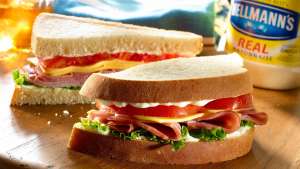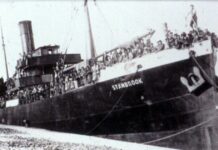The UK’s decision to leave the European Union means travellers face bans on a wide range of goods.
As a Dutch television report showed, border officials have been confiscating sandwiches from motorists arriving in the Netherlands from the UK – with one frontier guard telling a driver: “Welcome to the Brexit, sir.”
Many items are now prohibited from travellers’ baggage. These are the most significant rules.
What foods are banned?
The ban on meat and dairy extends to items such as cakes that contain fresh cream and confectionery “made with high levels of unprocessed dairy ingredients”.
There is an exemption for powdered infant milk, infant food, and special foods required for medical reasons; they must weigh less than 2kg and be packaged, proprietary brand products.
Other specific exemptions are “olives stuffed with fish” and “pasta and noodles, if processed or cooked (but not if mixed or filled with meat or meat products)”.
Vegetables and most fruit are also banned – though bananas, coconuts, dates, pineapples and durians are permitted.
Fish weighing up to 20kg are permitted, though for the specific case of sturgeon caviar the limit is 125g.
“Products other than those described above which do not contain meat or milk (eg honey)” are limited to 2kg.
What about duty-free?
The prices of alcohol and tobacco for UK travellers outbound to the European Union have fallen, because all sales are now duty free. But there are now strict rules on what you can bring in to the EU: one litre of spirits and 200 cigarettes (though only 40 to Estonia and Romania).
“Other goods” are limited to a total of €430 (£390) for travellers by air and sea.
Fuel?
You can carry up to 10 litres in a portable container, in addition to the fuel contained in your vehicle’s tank.
What is the effect on trips to Northern Ireland?
The rules above apply for journeys from Great Britain to Northern Ireland.
The duty-free regulations only affect goods bought free of duty elsewhere – for example if you buy in Dubai, fly to Manchester and transfer for a domestic flight to Belfast, you will be limited to a litre of spirits, 200 cigarettes and £390 in other goods.
What does the government say?
On 1 January the Northern Ireland secretary, Brandon Lewis, tweeted: “There is no ‘Irish Sea Border’.
“As we have seen today, the important preparations the Govt and businesses have taken to prepare for the end of the Transition Period are keeping goods flowing freely around the country, including between GB and NI.”






